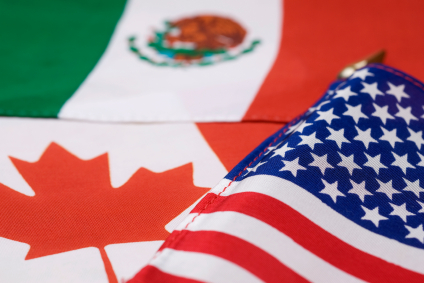
The Basics of Shipping Products Overseas
By Amy Nutt
The overseas marketplace can be a highly lucrative business market. Many small businesses tend to stay clear of the overseas market because they are not familiar with the shipping process. When a business acquires knowledge about shipping products overseas, they will find it is much easier to tap into a huge market.
Shipping product overseas has a number of different features then regular domestic shipping. In order to take advantage of the overseas market, one has to be to be aware of the aspects involved with shipping products overseas. The key to finding the best overseas shipment method is to do your homework. There are number of ways one can ship their products overseas such as USPS, UPS, FedEx, and companies that specialize in shipping items overseas. Because some companies are cheaper than others, it is important to compare shipping prices and how each company transports their products. You may be able to negotiate volume discounts with a shipping service for certain types of shipments.
When packaging a product for shipment, it is important that the package is packed properly in order to minimize damage. When shipping items overseas, packages pass through many hands so a well packed item will help avoid damage. The package should have the correct labeling to help avoid disruption in shipment or a lost shipment. You must also have the proper documentation that meets your country's requirements as well as the receiving country's requirements. Typical documentation includes air waybills, bill of lading, commercial invoice, consular invoice, certificate of origin, NAFTA certificate of origin, inspection certification, dock receipt and a warehouse receipt, destination control statement, and shipper's export declaration. You should also make sure that the item is insured against damage and loss. When packing the item, conceal the identity of the content and make sure the item is in compliance with environmental and safety standards.
Because of the large number of considerations and steps involved in physically shipping products overseas, most people enlist an international shipping company to perform these services. International shippers are knowledgeable about the overseas port systems, so they will know details such as packaging and the required documentation. Shipping overseas normally involves a number parties that can include shipper, consignee, (usually the client or importer representing client) notify party, (client or a third party), freight forwarder, (shipping agent coordinating the process) and the Customs broker (helps clear Customs for the imported products)
If one does not want to use a shipping company, they should prepare their shipment utilizing the following guidelines:
- Pack in strong and well-sealed containers. Label the boxes clearly.
- The weight should be uniformly distributed to provide secure bracing in the container
- Packaging should be moisture resistant.
- Do not pack any materials that are on a countries import prohibited list. This can include such items as weapons, pesticides, flammable products..etc. Each country has a list of prohibited items. Make sure that you check the list before you ship your package.
Basically, you should hire a specialized company to ship your products. Prices and services can vary from company to company. For instance, some companies may use different shipment routes. When looking for a company to send your products overseas, shop around and don't hesitate to ask a lot of questions. A little knowledge and research can open up a huge new market for your business.
source : /compare-shipping
No comments:
Post a Comment